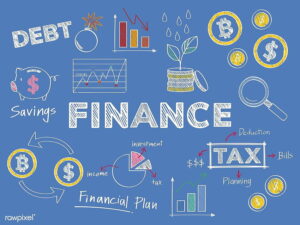To buy Hyundai inventory in India, you want to follow...
Read MoreMost Recent Blogs
Kyle Verreynne Net Worth
An industrious South African cricketer, Kyle Verreynne has done well...
Read MoreDeepak Mohoni Net Worth in 2024
Deepak Mohoni is a famous call within the Indian stock...
Read MoreSherrone Moore net worth in 2024
Sherrone was born on 31st December in the year 1974,...
Read MoreYour Financial Education
Financial Education वित्तीय शिक्षा आपके धन का कुशलतापूर्वक प्रबंधन करने...
Read MoreTolins Tyres IPO Share Price
Tolins Tyres IPO share Price Tolins Tyres is gearing up...
Read MoreKross Limited Share Price
Kross Limited share price Kross Limited is a distinguished player...
Read MoreBrett Rypien Net Worth
Brett Rypien net worth American football quarter back Brett Rypien...
Read Morewhat is Financial Planning?
Financial planning is a comprehensive approach to handling your price...
Read MorePopular Blogs
Bill Pascrell Net Worth in 2024
Bill Pascrell net worth: Bill Pascrell’s net worth is a...
Read MoreWhat is Nutrition? : Nutrition and Mental Health
Nutrition is the cornerstone of a healthy lifestyle. It encompasses...
Read MoreDecoding Variables: Understanding Their Significance and Functionality
Variables lie at the core of programming and data analysis....
Read MoreGuide to Creating Stunning Web Pages by HTML
HTML stands as the cornerstone, the bedrock upon which the...
Read MoreEthereum, the second one-largest cryptocurrency through market capitalization, has revolutionized the blockchain and crypto vicinity with its clever settlement functionality and decentralized applications (dApps). As Ethereum maintains to gain traction, buyers are searching for tactics to advantage exposure to this digital asset. One such road is thru Ethereum Exchange-Traded Funds (ETFs).
Table of Contents
ToggleOverview of Ethereum
Ethereum is a decentralized, open-source blockchain platform that enables developers to construct and set up smart contracts and decentralized programs (dApps). Launched in 2015 via a crew led via Vitalik Buterin, Ethereum has grown to become one of the maximum huge and extensively-used blockchain networks inside the international, second most effective to Bitcoin in terms of market capitalization.
Key Features of Ethereum
1. Smart Contracts:
- Self-executing contracts with the terms at once written into code.
- Automatically perform movements while sure situations are met.
2. Decentralized Applications (DApps):
- Apps that run at the Ethereum blockchain.
- No single character or business enterprise controls them.
3. Ether (ETH):
- The cryptocurrency used on the Ethereum network.
- Acts as gas for transactions and clever contracts.
4. Blockchain Technology:
- A steady, virtual ledger that information all transactions.
- All individuals can view and affirm transactions.
5. Decentralization:
- No primary authority controls Ethereum.
- Managed by means of many computer systems (nodes) around the arena.
6. Programmable Money:
- Ability to create and control virtual property and contracts.
- Allows for complicated monetary transactions.
7. Interoperability:
- Can connect and have interaction with other blockchains.
- Facilitates communication between distinctive blockchain networks.
8. Security:
- Uses cryptographic strategies to stable transactions.
- Very hard for hackers to adjust the blockchain.
Why Invest in Ethereum ETFs?
- Diversification Benefits: Spread Your Risk: Instead of setting all your money into one kind of investment, Ethereum ETFs let you spread your money throughout specific assets. This can help reduce the danger of dropping money.
- Lower Risk Compared to Direct Investment: Investing without delay in Ethereum can be very unstable because its price can change lots in a quick time. ETFs are normally much less volatile, making them a more secure choice for lots traders.
- Ease of Trading and Liquidity: Easy to Buy and Sell: You can buy and promote Ethereum ETFs without problems at the stock market, similar to normal shares. This makes them very convenient for buyers.
- Cash Out Quickly: Because they may be traded on the inventory marketplace, you may fast convert your ETFs lower back into cash if wished.
Professional Management - Expert Oversight: Ethereum ETFs are controlled by means of professional fund managers who have experience and know-how inside the field. They make investment choices to your behalf, which can be reassuring in case you’re not familiar with the market.
- Access to a Growing Market: Get in at the Action Ethereum is one among the biggest and most popular cryptocurrencies. By investing in an ETF, you can take part in its growth while not having to recognize all the technical information of purchasing and storing Ethereum yourself.
Regulated Investment - Safer Environment: Ethereum ETFs are regulated by monetary government, which provides a layer of safety and trust. This is different from shopping for Ethereum directly from an alternate, in which there is probably more risks worried.
Investing in Ethereum ETFs can offer a balanced approach to getting involved inside the cryptocurrency marketplace. It gives the benefits of professional management, ease of trading, and a potentially decrease risk compared to direct investment in Ethereum.
How Ethereum ETFs Work
- Pooling Money: When you invest in an Ethereum ETF, your money is pooled together with money from different traders.
- Buying Ethereum: The fund manager uses this pooled money to shop for Ethereum. This method the ETF owns Ethereum on behalf of all the investors.
- Shares of the ETF: As an investor, you personal stocks of the ETF, not the real Ethereum. The price of those shares relies upon at the fee of Ethereum. If Ethereum’s charge goes up, the value of your stocks goes up. If the price goes down, the cost of your shares goes down.
- Trading on Stock Exchanges: You should purchase and promote shares of the Ethereum ETF on the stock alternate in the course of market hours. This makes it smooth to spend money on Ethereum without needing to control a digital wallet or address the complexities of buying cryptocurrency directly.
- Expense Ratio: The ETF expenses a small fee, called the expense ratio, for dealing with the fund. This price is taken out of the fund’s belongings and is mostly a small percent of your investment.
Key Factors to Consider When Choosing an Ethereum ETF
When deciding on an Ethereum ETF, it’s crucial to take a look at several key factors. Here are the primary things you should recall:
1. Expense Ratio
- What It Is: The price ratio is the annual price that the ETF expenses its investors.
- Why It Matters: A decrease price ratio manner you preserve more of your investment returns. Look for ETFs with low costs.
2. Tracking Accuracy
- What It Is: Tracking accuracy measures how intently the ETF follows the charge of Ethereum.
- Why It Matters: Better monitoring approach the ETF’s overall performance may be more just like the overall performance of Ethereum.
3. Fund Size and Liquidity
- What It Is: Fund length refers to the entire assets beneath control by using the ETF. Liquidity is how without difficulty you can purchase or promote the ETF.
- Why It Matters: Larger and extra liquid ETFs are typically extra strong and simpler to exchange.
4. Management Team
- What It Is: The management group is the group of experts who oversee the ETF.
- Why It Matters: Experienced managers could make better decisions, that can lead to better ETF performance.
5. Performance History
- What It Is: Performance history shows how well the ETF has achieved within the past.
- Why It Matters: While beyond overall performance doesn’t assure future effects, it may give you an concept of ways properly the ETF would possibly carry out.
6. Trading Volume
- What It Is: Trading quantity is the quantity of stocks which might be sold and bought each day.
- Why It Matters: Higher trading volumes suggest more liquidity, making it easier to buy and sell the ETF.
7. Regulatory Compliance
- What It Is: Regulatory compliance ensures that the ETF follows all laws and guidelines.
- Why It Matters: ETFs that follow policies are safer and more dependable.
8. Tax Efficiency
- What It Is: Tax efficiency refers to how the ETF’s shape impacts your taxes.
- Why It Matters: Some ETFs are extra tax-green
Top Ethereum ETFs in the Market
Ethereum ETFs are getting famous for investors who want to gain exposure to Ethereum without without delay shopping for the cryptocurrency. Here are some of the top Ethereum ETFs inside the marketplace:
1. Grayscale Ethereum Trust (ETHE)
- Overview: One of the oldest and maximum well-known Ethereum trusts.
- Pros: Large fund size, extensively identified.
- Cons: High control charges, on occasion trades at a premium to net asset value (NAV).
2. Bitwise Ethereum Fund
- Overview: A fund that offers direct exposure to Ethereum.
- Pros: Lower charges in comparison to Grayscale, honest funding.
- Cons: Limited liquidity, to be had to permitted investors handiest.
3. Purpose Ether ETF (ETHH)
- Overview: One of the primary Ethereum ETFs launched in Canada.
- Pros: Low price ratio, smooth to buy on the stock marketplace.
- Cons: Subject to Canadian regulations, foreign money risk for non-Canadian investors.
3. CI Galaxy Ethereum ETF (ETHX)
- Overview: Another Canadian ETF that offers direct publicity to Ethereum.
- Pros: Low expenses, authentic control team.
- Cons: Limited to Canadian markets, foreign money risk for international buyers.
4. Evolve Ether ETF (ETHR)
- Overview: A Canadian ETF designed to offer publicity to the each day rate actions of Ethereum.
- Pros: Competitive charges, on hand via fundamental brokers.
- Cons: Currency threat for non-Canadian buyers, much less known compared to other ETFs.
5. 21Shares Ethereum ETP (AETH)
- Overview: A European product that tracks the charge of Ethereum.
- Pros: Traded on main European exchanges, low expenses.
- Cons: Limited to European traders, forex risk for non-Euro investors.
WisdomTree
6. Ethereum ETP (ETHW)
- Overview: Another European ETP that gives direct publicity to Ethereum.
- Pros: Trusted call inside the ETF enterprise, aggressive fees.
- Cons: Limited to European markets, forex risk for global buyers.
How do I buy Ethereum ETFs?
1. Understand What an Ethereum ETF Is: An Ethereum ETF (Exchange-Traded Fund) is a fund that tracks the rate of Ethereum, a famous cryptocurrency. By shopping for an Ethereum ETF, you invest in Ethereum with out proudly owning it at once.
2. Choose a Brokerage Account: To purchase Ethereum ETFs, you want a brokerage account. This is an internet platform where you may buy and promote ETFs. Examples consist of Robinhood, E*TRADE, and Fidelity.
3. Open Your Brokerage Account: If you don’t have a brokerage account, you want to open one.
- Visit the internet site of the brokerage company.
- Click on “Open an Account” or comparable.
- Fill on your private information, consisting of call, cope with, and Social Security variety.
- Submit any required documents.
- Wait on your account to be authorized, which generally takes a few days.
4. Deposit Money Into Your Account: Once your account is open, you need to deposit cash into it. You can do this via linking your financial institution account and shifting budget.
5. Search for Ethereum ETFs: Log in in your brokerage account and use the hunt bar to look for Ethereum ETFs. You can seek via name or ticker symbol (a unique code for the ETF). Some popular Ethereum ETFs may encompass names like “Ethereum ETF” or symbols like “ETHX.”
6. Decide How Many Shares to Buy: Once you locate the Ethereum ETF you want, determine how many stocks you want to shop for. The rate of one proportion is listed, and you may purchase as many as you want or can find the money for.
7. Place Your Order
To buy the ETF, you want to vicinity an order.
- Click at the ETF you need to shop for.
Choose “Buy.” - Enter the variety of stocks you want.
Select the type of order. For beginners, a “Market Order” (shopping for on the current charge) is the handiest. - Confirm your order.
8. Monitor Your Investment
After buying the Ethereum ETF, you can see it in your brokerage account. Keep an eye on your investment to see how it’s performing. You can sell it anytime through your brokerage account if you need to.
Conclusion
Choosing the right Ethereum ETF relies upon on factors like costs, performance, liquidity, and the way intently it tracks Ethereum’s rate. Look for ETFs with low prices, robust past performance, and excessive trading volumes. Make certain you recognize the dangers concerned. Ultimately, the high-quality Ethereum ETF is the only that fits your investment desires and offers an excellent balance of cost and overall performance. Doing your studies and consulting with a financial marketing consultant assist you to make the first-class choice.
FAQ'S
Q:Does Ethereum have an ETF?
Yes, Ethereum does have ETFs (Exchange-Traded Funds). These ETFs allow investors to gain exposure to Ethereum without directly buying the cryptocurrency.
Q:What is the 3X Ethereum ETF?
A 3X Ethereum ETF is a leveraged exchange-traded fund designed to deliver three times the daily return of Ethereum’s price movement. It aims to amplify gains or losses by a factor of three, which means if Ethereum’s price goes up or down by 1% in a day, the ETF seeks to move by 3% in the same direction. These ETFs are highly volatile and are usually used for short-term trading rather than long-term investing.
Copyright © All Rights Reserved. GMS













